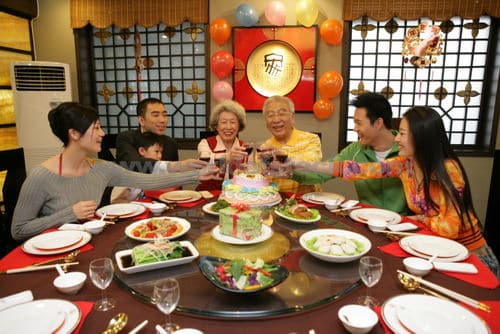In China, honorifics are frequently bestowed on strangers as a way to express friendliness and good will. For women, “older sister” (jiejie) is used for someone around your age, while “auntie” (ayi) is for the generation above you. Guy friends seem to call each other “brother” (ge) as often as possible, often accompanied with a hearty slap on the back.
As I was backpacking through China last month, I found that doling out these titles in a proper manner helped me get along well with strangers. Alone on the road, you’re often completely reliant on others for your good fortune. A well-placed “jiejie” can help you cajole a vendor into giving you a better price, and calling young women “little sister” (xiaomei) never fails to flatter. Once, completely lost in a small town in northwestern Yunnan, I found a “grandpa” who provided me not only with directions but also a cup of hot tea.
In the age of the one-child rule, maybe these family-oriented honorifics allow only children to pretend they have a bigger family than they actually do. Having brothers and aunties everywhere certainly makes you feel like you’re part of one big family, an integral part of the Chinese psyche. Reminding people of this can ease the harshness and ferocity that are sometimes encountered while traveling in China. So here’s to the aunties along the way – thank you for the help, and for treating me as well as family.
在中国,敬语经常用来称呼陌生人表达友好和善意。对于女士来说,“姐姐” 用于和你年龄相仿的人,而 “阿姨” 称呼年长的上一代。男性朋友经常称作“兄弟”,伴随在背后面拍一巴掌。
当我上个月在中国背包旅行,我发现适当以这些头衔帮助我与陌生人友好相处。当一个人孤独地在路上,你经常依赖别人的帮助。一个甜甜的 “姐姐”可以帮助你得到一个更好的价格,叫一声,“小妹” 会令人高兴。有一次,我在云南西北部的一个小镇完全迷了路,我碰到了一位“爷爷”他不仅提供方向,还给了我一杯热茶。
在一个独生孩子的年代,这样的称呼别人有助于让独生子女感觉他们仿佛生活在一个大家庭 。因为到处有兄弟和阿肯定会让你觉得你是一个大家庭的成员,这是中国人的大家庭心里的一部分。这也有助于缓解人们外出旅游的艰苦和恐惧。好像沿途都是阿姨—感谢你帮助我,把我当成家庭成员一样。


